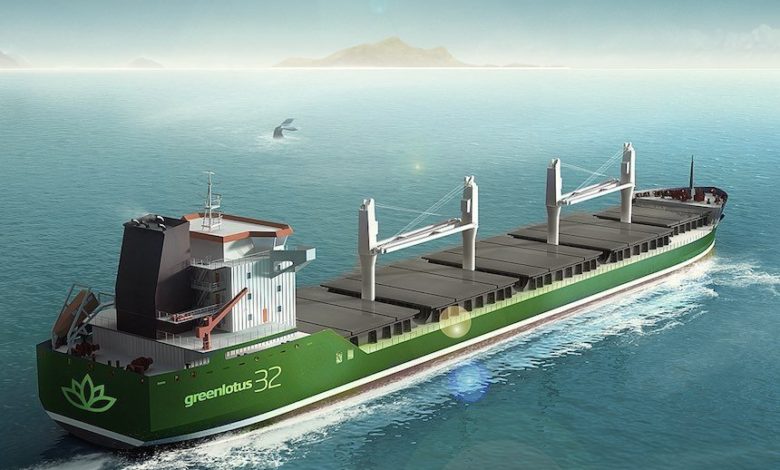Gaping holes in the Clean Ship concept

Katherine Hawes from Aquarius Lawyers takes regulators to task.
Seas at Risk coined the phrase ‘Clean Ship’ and the concept was launched at the fifth North Sea Conference in 2002. Increasingly the term is used to define and describe the ultimate objective for an environmentally benign shipping sector.
The Clean Ship is a ship designed and operated in an integrated manner to eliminate harmful operational discharges and emissions. It is a ship that has been constructed, and can ultimately be recycled in an environmentally acceptable way. It is also one that in its daily operations is both energy and resource efficient.
As a result, a Clean Ship operation maximizes the opportunities for safe and environmental navigation, while at the same time providing all possible safeguards in the event of an accident. It therefore puts safety and environmental protection first.
It is fair to say that although research and development is required, very few operators follow this best practice approach and the majority of the industry is environmentally sub-standard.
There is now a need to focus on closing this gap to ensure that the clean ship concept does not remain a dream for most. Although there are currently a number of International Environmental Laws that aim to impose environmental standards on shipping, there still is not one specific law covering the field of clean shipping itself and it purely relies on the good will of countries to enforce the standards.
Current Environmental Laws include:
International Convention for the Prevention of Pollution from Ships (MARPOL)
In 1973, IMO adopted the International Convention for the Prevention of Pollution from Ships, now known universally as MARPOL. The MARPOL Convention addresses pollution from ships by oil; by noxious liquid substances carried in bulk; harmful substances carried by sea in packaged form; sewage; garbage; and the prevention of air pollution from ships.
MARPOL has greatly contributed to a significant decrease in pollution from international shipping and applies to 99% of the world’s merchant tonnage.
International Laws on Marine Debris
The Marine Pollution Convention (known as MARPOL), Annex V, is an international treaty that regulates the disposal of garbage aboard ships. According to MARPOL, garbage includes “all kinds of food, domestic and operational waste, excluding fresh fish, generated during the normal operation of the vessel and liable to be disposed of continuously or periodically.” Annex V also prohibits the discharge of plastics anywhere in the sea.
Ships, according to the treaty, must keep a garbage logbook to track all disposal and incineration aboard the ship. National governments must also provide facilities at ports and terminals to collect garbage from ships.
Annex VI to the International Convention for the Prevention of Pollution from Ships (MARPOL) – 2008 Amendments
In October 2008, member states of the IMO adopted new international standards for marine diesel engines and their fuels (2008 Amendments to MARPOL Annex VI) that apply globally as of July 1, 2010. The amendments also established additional, more stringent emission requirements for ships that operate in designated coastal areas where air quality problems are acute, called Emission Control Areas (ECA’s). These new global and geographic standards have the potential to significantly reduce air pollution from ships, and provide important benefits to our national air quality.
Control of harmful anti-fouling Systems
Recognizing the importance of protection of the marine environment and human health from adverse effects of anti-fouling systems the IMO adopted the International Convention on the Control of Harmful Anti-fouling Systems on Ships, which entered into force in September 2008. The Convention prohibits the use of harmful organotins in antifouling marine paints and establishes a mechanism to prevent the potential future use of other harmful substances in anti-fouling systems. 52 Member States have ratified the instrument to date and the number of Parties continues to rise.
London Convention and protocol
The “Convention on the Prevention of Marine Pollution by Dumping of Wastes and Other Matter 1972” (the “London Convention”) was one of the first global conventions to protect the marine environment from human activities and has been in force since 1975. Its objective is to promote the effective control of all sources of marine pollution and to take all practicable steps to prevent pollution of the sea by dumping of wastes.
In 1996, the “London Protocol” was adopted to modernize and supersede the Convention. The London Protocol entered into force in March 2006 and currently has 40 Parties. Under the Protocol all dumping is now generally prohibited, but Parties may issue permits to allow the dumping of the some materials on an approved list.
Whilst the Conventions and Protocols currently enforce go some way to making the concept of a clean ship a reality, in truth there are gaping holes in the current laws and as a result, it continues to be more of a dream, than a reality.
